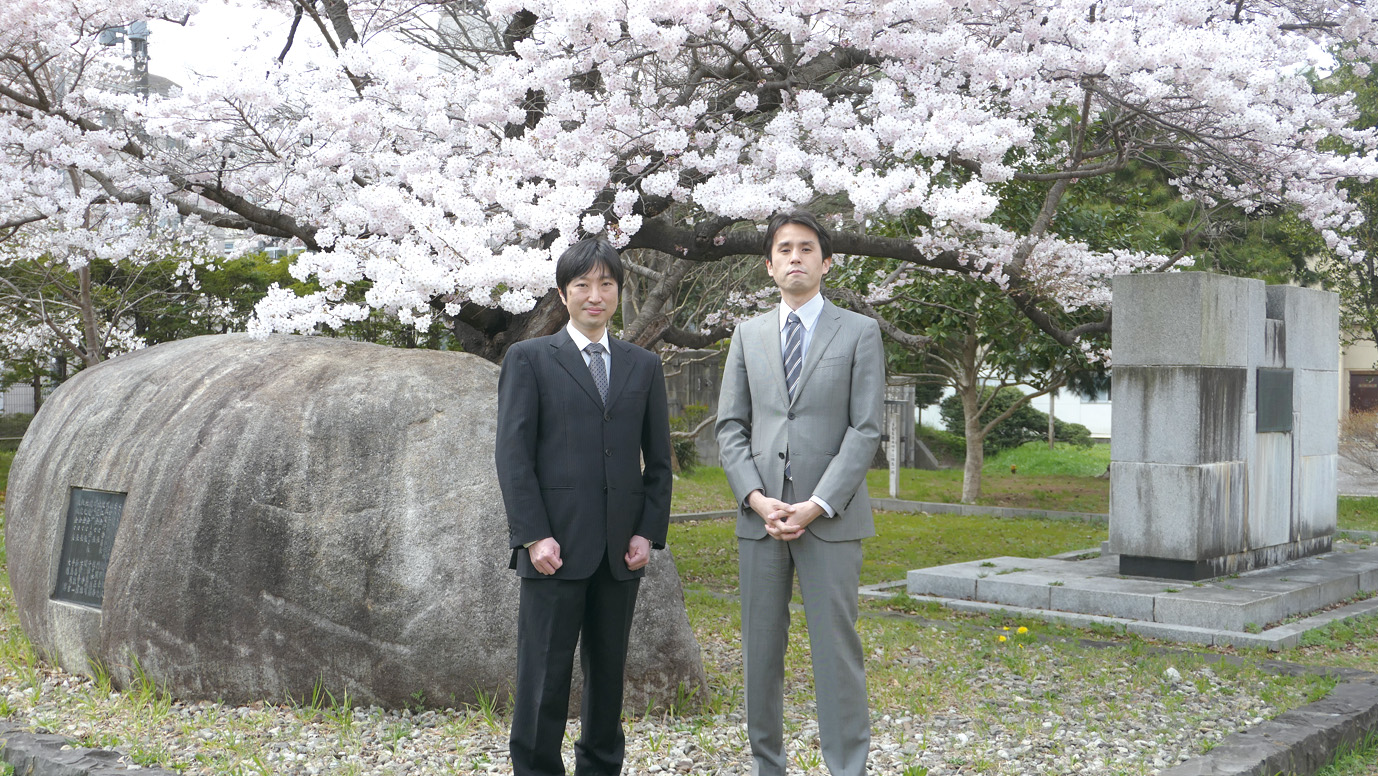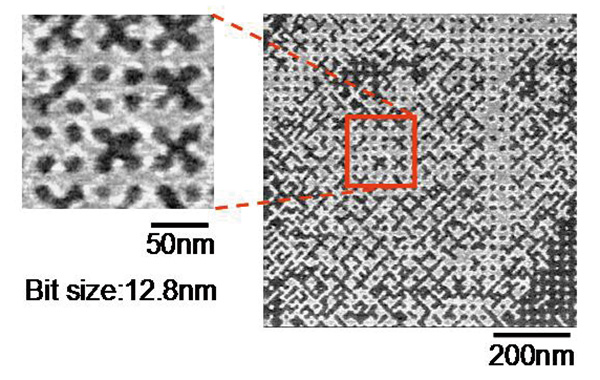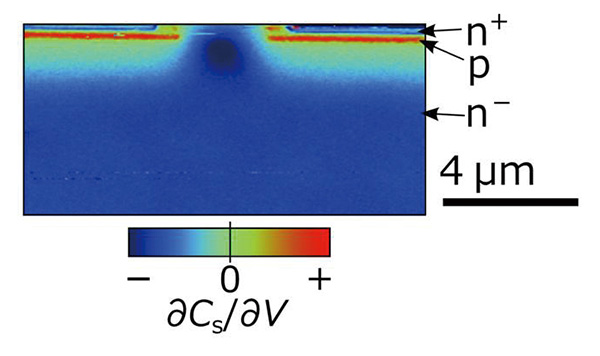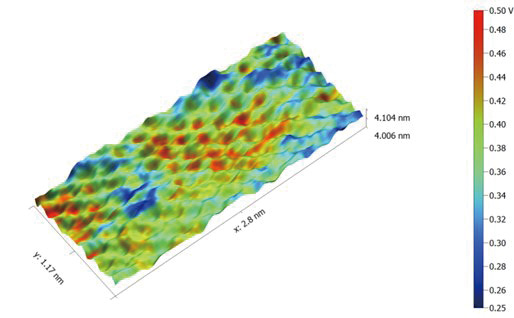- >> Computing System Platforms Division
-
Dielectric Nano-Devices
Researcher

- [ Associate Professor ]
Kohei Yamasue - [ Associate Professor ]
Yoshiomi Hiranaga
Group Web Site
http://www.d-nanodev.riec.tohoku.ac.jp/english/index.html
Research Activities
The aim and target of the dielectric nano-devices laboratory are developing the research on the dielectric measurement of electronic materials using nano-technologies and applying its fruits to high-performance next generation electronic devices.
Our main area of interest is evaluation and development of dielectric materials, including ferroelectric and piezoelectric materials and their application to communication devices and ferroelectric data storage systems. Our major contributions to advancement in these fields are the invention and the development of “Scanning Nonlinear Dielectric Microscope” (SNDM) which is the first successful purely electrical method for observing the ferroelectric polarization distribution without the influence of the shielding effect by free charges and it has already been put into practical use. The resolution of the microscope has been improved up to atomic scale-order. Therefore, it has a great potential for realizing the ultra-high density ferroelectric recording system. Our recent research achieved the recording density of 4 Tbit/inch2 in actual information storage, requiring an abundance of bits to be packed together (Fig.1).
Moreover, we have started the novel applications of SNDM to the evaluation of semiconductors such as dopant profiling in SiC power devices (Fig.2) and defect imaging in buried dielectric-semiconductor interfaces. Because SNDM can detect very small capacitance variation, it can be a very powerful evaluation tool for various materials. Now SNDM evolves into a new evaluation technique for insulator and semiconductor materials besides ferroelectric materials (Fig.3).



Nanoscale Dielectric Measurement Systems
(Assoc. Prof. Yamasue)
Research topics
- Development of noncontact scanning nonlinear dielectric microscopy and potentiometry with atomic-resolution
- Development of multifunctional time-resolved scanning probe microspectroscopy system and its application to the evaluation of the next-generation electronic materials and devices
We intend to contribute to future information and communication technology through the creation of an innovative nano- and atomic-scale measurement platform for the evaluation of the emerging electronic materials and devices. In particular, we are developing scanning nonlinear dielectric microscopy and potentiometry for the atomic-scale investigation of material properties regarding electric polarization on surfaces and interfaces. We are also working on the establishment of a multifunctional time-resolved scanning probe microspectroscopy system. By integrating it with simulation and data-driven approach, we aim to realize advanced analysis and characterization of next-generation materials and devices including two-dimensional crystals and wide bandgap semiconductors.
Dielectric Materials Science and Engineering
(Assoc. Prof. Hiranaga)
Research topics
- Development of ferroelectric probe data storage
- Development of nanoscale characterization methods for ferroelectric/piezoelectric materials and devices
We are promoting research aimed at the practical application of ferroelectric probe data storage, and are conducting a wide range of research and development from the production and evaluation of recording media to the prototype development of the read/write system. In addition, we are focusing on the evaluation of ferroelectric and piezoelectric materials using scanning nonlinear dielectric microscopy. We are developing the advanced measurement system for revealing nanoscale dynamics of polarization reversal behavior aiming at contributing to the progress of this field.




